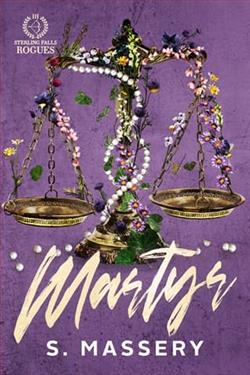Page 15 of Last Letter Home
‘Martin, you agreed it would be good for both of us!’
‘If you’re happy, I’m happy,’ Briony’s father said, beaming as he collected up the dirty plates, and Briony could see that he meant it. He was perfectly satisfied with his life. She felt a prickle of envy.
She glanced around the kitchen. There was nothing much of the past here. No photographs of her mother. Everything was new, from the knives and forks on the table to the landscaped garden beyond the French windows. Sadness and disappointment had been wiped from this house as though they had never been. She supposed she ought to admire her father and stepmother for this, but she couldn’t quite. It felt as though her own past had been expunged, too.
Still, it was worth it to ask: ‘Dad, about Grandpa’s things.’
‘Ah, yes. Lavender, where did you put Jean’s father’s bits and bobs?’
‘The drawer under the bed in the guest room,’ she said after a second’s thought.
The guest room was actually Briony’s old bedroom, though it had been redecorated twice since she left home, just as Will’s room had been appropriated as Lavender’s sewing room.
After the meal was over and the kitchen restored to a pristine state, Briony followed her father upstairs. She stared around at the flowery bower that her bedroom had become and wondered at the fact that she still slept in it occasionally without realizing that Grandpa’s things had been underneath her all the time. She’d peeped in the drawer before, but had only seen spare duvets and pillows. Now when she pulled it out from the bed and pushed aside a duvet, she saw with a stab of tenderness that she’d missed hidden treasures: four framed photographs of her mother stacked neatly together, her parents’ wedding album, a box with ‘Jean’s schoolbooks’ written on it.
For a couple of years after their mother’s death little that had been hers was removed from the house. It was Granny Andrews who had insisted on sorting through her clothes with the help of Jean’s closest friend from school. Her few nice pieces of jewellery were put aside for Briony, though the pearl necklace and the gold dress watch were not the sort of things she’d wear. Instead she secreted away for herself the things that reminded her of her mum – a phial of Chanel No. 19, a lipstick, half spent, some of her favourite novels, a black velvet choker she’d worn on evenings out.
Because of a difficult housing market, Martin and Lavender, when they got together, decided not to move, and Lavender tactfully disposed of much else during the early years of their marriage. Occasionally her father had given Briony something of Jean’s – a pretty majolica vase bought on holiday, a framed handbag mirror with shells stuck round it that she’d made for Mum at primary school. She’d grown mature enough to recognize that the house must properly become Lavender’s, but she always felt there would be this wedge between her and her stepmother. Now, seeing these photographs of her mother buried away, and the box of papers, by rights hers and Will’s – not that Will ever showed any interest in such things – made her feel the sharp edge of it digging in.
‘Try in the corner there,’ her father said over her shoulder and she moved the wedding album to reveal the corner of a green, lidded shoebox, pale with age. She pulled it out.
‘I’ll leave you to look at it on your own, shall I?’ Her father smiled. ‘You don’t want me getting in the way.’
‘You are never in the way, Dad,’ she said, ‘but thanks.’
Briony cradled the box and sat on the bed with it, eased off the rubber band that held it and lifted the lid. Inside was a jumble of photographs and news cuttings. There was a small flat blue box, too, which when she lifted it out proved to contain several medals. She laid it on the duvet and picked up a photograph from the top of the pile. It was a studio portrait of her grandfather as a young man of, what, thirty, good-looking with deep-set, laughing eyes, short dark hair smoothed back. Odd to think he’d be a hundred now if he had lived. She only had the haziest memories of him now; he’d died nearly thirty years ago.
A wedding photograph, just the two of them, Granny in a neat suit, though she carried flowers. Grandpa and Granny had met in London at the end of the war, so the story went. Her grandmother had shared her sandwich with him on a park bench and they’d got talking. A whirlwind romance that had lasted a lifetime, she dying broken-hearted a few years after her daughter. It was strange, Briony thought, looking at their young faces, Granny’s radiant, Grandpa’s proud, and remembering that she was already much older now than they’d been then.
From further down the pile she found herself holding a sepia-coloured postcard of camels and pyramids. She turned it over, but it was blank. Further into the box were several letters, and, at last, another photograph, this time of several soldiers lounging in front of an army truck. The building in the background she saw was none other than the Villa Teresa and her heart leaped. This was what she’d been searching for. She recognized one of the soldiers from the film footage – a tall, athletic, dark-haired lad with a serious expression. This time when she flipped it over, she was rewarded. Ivor Richards, Harry Andrews, Paul Hartmann, someone, possibly her grandfather, had scrawled in a triangle to match the position of the figures. The serious-faced young man must be the Paul Hartmann of the letters. She’d found him.
Riffling through the dry papers in the box, she came to a small whitish envelope on which was written only a name: Sarah Bailey, she read in surprise. What on earth was it doing here? She lifted the flap easily, withdrew a sheet of paper and pinched it open.
Sarah, she read. Sorry for the rush, but Harry’s promised to get this message to you. I’m back in Blighty and wondered if you’d received a letter I sent you a few days ago. I’m staying at the —. All my love, Paul.
The name of wherever he was staying was smudged and illegible. But the word ‘love’, that intrigued her.
Why had Harry Andrews kept a letter that clearly wasn’t his? Had he not been able to deliver it?
Eight
December 1938
Sarah kept a protective hand on the shoebox beside her as she stared out of the train window at the wintry Norfolk countryside. White-laced trees bordered fields where hazy sunshine dazzled off a cloak of snow. A flock of starlings swirled up like cinders into the sky, imbuing her spirits with a mixture of joy and melancholy. Joy because she was returning to the countryside she’d loved since a child, melancholy because the innocent happiness of those times was now lost to her. Her lips trembled at the reminder that her father would never see the English countryside again. She glanced at her mother, sitting opposite, but Mrs Bailey was not noticing the passing landscape, so absorbed was she in her book.
The train gave a long, mournful wail and began to slow as their station slid into view. Sarah nudged Diane, who’d been dozing against her shoulder since Ipswich.
‘Are we here? Thank goodness.’ Her sister gave a dainty yawn, stretched like a cat, then craned to check her appearance in the foxed mirror on the carriage partition. The nap had not refreshed her, Sarah thought, watching her adjust the angle of her hat and smooth her fur collar. There were dark shadows beneath Diane’s eyes that face powder failed to disguise. Their mother looked the same. Months of grief, preparations for departure from India and the stormy sea voyage had taken a toll on all three of them.
‘I don’t know what we shall do if there’s no one to meet us.’ Belinda Bailey’s upright figure registered regal disapproval as she slipped a soft leather marker between pages and stowed book and spectacles into her bag.
‘I’m sure the Richards’ maid will have passed on the message, Mummy. She sounded very efficient.’
‘I suppose we could ask someone at the station to summon a taxi.’
‘Mummy, I’m sure it’ll be all right.’ It was unusual for Mrs Bailey to fuss like this, a rare sign of nerves.
The train’s brakes squealed as it juddered to a halt. A rubicund gentleman in plus-fours, who’d got on at Stowmarket, assisted them with their luggage. Sarah, clutching her precious box under one arm, managed a case with the other, while their mother carried the hatbox and Diane was left with only a handbag.















